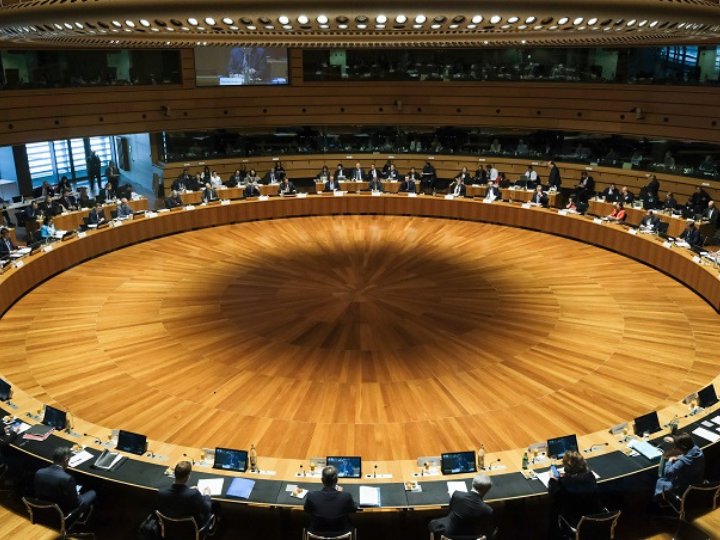by Janos Allenbach-Ammann
Industry ministers from the EU’s 27 member states met in Brussels to discuss the bloc’s supply of critical raw materials on Monday (22 May), as the Swedish EU Council Presidency aims to reach a common position before the summer.
“This is a prioritised file during the Swedish presidency,” Sweden’s industry minister Ebba Busch told her counterparts at the beginning of the discussion on the Critical Raw Materials Act (CRMA).
The European Commission tabled the CRMA on 16 March, aiming to decrease the EU’s dependence on China and other countries for raw materials that are considered essential for the green and digital transitions, such as lithium or rare earths which are used in car batteries or wind turbine magnets.
In its proposal, the Commission set out targets for self-sufficiency in mining, refining, and recycling of raw materials. To support this, Brussels wants to ease permitting rules for new mining projects and create a joint purchasing platform for European companies at the EU level so they can get better deals.
While ministers in Brussels underlined the need for “tempo, tempo, tempo”, as Busch said, they also pointed to a variety of concerns that member states still have with the proposal.
Dilemmas
“My main concern today is with the social opposition that we have in Europe to develop this type of mines,” Portuguese economy minister Antonio Costa Silva said, describing what he called a paradox: “people would like to develop a very advanced technological civilisation, but they reject completely the development of new mines.”
Lisbon is keenly aware of the difficulties. For years, local residents have resisted attempts to open a new lithium mine near the village of Covas do Barroso, leading to several delays in the auctioning process, which was initially planned for 2018.
Dara Calleary, the Irish minister, also warned of the low social acceptance of new mining projects, calling for more public engagement to support the CRMA.
The Italian minister of economic development, Adolfo Urso, called on the European Commission “to be very assertive in terms of communication so that citizens understand the efforts”.
Dilemmas are sure to surface in the quest for raw materials. “There is no mining without environmental impact,” Slovak State Secretary Peter Svec said.
For example, Urso pointed to the fact that many of the Italian raw materials deposits were in tourist regions like Tuscany, Liguria and Sardinia where nature reserves make any mining activity more difficult.
According to him, Italy not only needs swifter permitting, but also more flexibility in the application of environmental legislation.
This is exactly what Belgium fears. “The permitting aspects should be clarified and adjusted to ensure a transparent and inclusive process for the impacted stakeholders,” the Flemish economy minister Jo Brouns said, underlining the need to uphold high social and environmental standards.
Recycling and international partnerships
With the obstacles faced by new mining projects clear, some ministers argued for more ambitious recycling targets.
German State Secretary Sven Giegold, for instance, proposed introducing minimum recycling targets for specific raw materials. French Minister Roland Lescure, meanwhile, suggested limiting the export of waste “to encourage the circular economy”.
Ministers also stressed the need to reduce the EU’s dependency on China by fostering international partnerships with other countries.
With an eye to ongoing negotiations on the Mercosur trade agreement, Spanish State Secretary Sara Aagesen Munoz called for partnerships, especially with Latin American countries. The goal of fostering such mutually beneficial international partnerships, meanwhile, could run counter to the CRMA’s ambition to increase the EU’s domestic processing capacities.
Negotiations between EU member states will be under intense time pressure as the Swedish EU Presidency aims to reach a “general approach” to the proposal in the Council before the summer break. At the same time, the European Parliament is also negotiating its position in view of opening final talks with EU countries in the autumn.
Closing the discussion on Monday, Swedish Minister Busch once again underlined the urgency of the file, saying that 90% of the raw materials needed for the green transition were coming from China.
“We need to show […] that we have drawn the lessons from our dependency on Russian gas and how vulnerable we are as a Union if we are so dependent on one single country,” she said.
*first published in: Euractiv.com




 By: N. Peter Kramer
By: N. Peter Kramer
